SHOP WITH A CONSCIENCE
2021 Gift Giving with a Purpose Catholic UPDATED
Tips to Reduce Your Footprint on the Earth

- Avoid single-use items
- Opt for organically made
- Avoid plastic, Styrofoam and packaging
- Shop local
- Purchase products with botanical ingredients
- Choose sustainability
- Avoid green washing
- Buy fair or ethically traded goods which are generally sustainably sourced as well
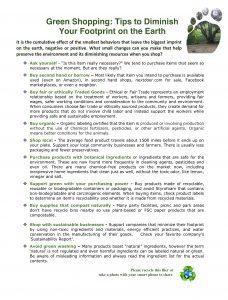
Shopping to Care for the Earth
Think about the hands that created your clothes or harvested your food. Were they children? Did they suffer? How much pollution and waste was produced and what was the impact on the nearby water sources?
In order to produce goods cheaply and quickly, companies may be giving up ethical and environmental measures to meet the demand for cheaper products. Ethical or Fair Trade represents an employment or trade relationship based on the treatment of workers, artisans and farmers, providing fair wages, safer working conditions and consideration to the community and environment. Fair Trade certification secures the rights of workers, reduces poverty and promotes sustainable development. When consumers choose fair trade or ethically sourced products, they create demand for more products that do not involve child labor and instead support the workers while providing safe and sustainable employment.
These are things we want to consider as conscientious consumers. We have the power to support greater causes through our purchases.
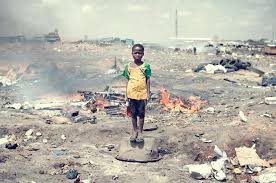
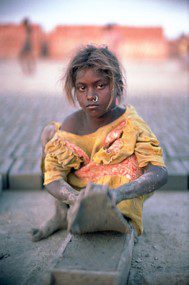
Shopping Sustainably & Ethically
READING LABELS can help guide you in seeking ethically sourced products that support the people and the environment where the item originates. Although a number of fair trade and sustainable certification agencies and standards exist, you can simply google most companies to find out more about their specific standards with respect to the environment and child labor practices even if they are not fair trade certified. Look for the company’s ‘sustainability’ or ‘social responsibility’ report.
Gifts That Give
SHOP WITH HELPING ORGANIZATIONS
SERRV International is a nonprofit online store dedicated to fighting global poverty through fair and ethical trade. SERRV employs nearly 8,000 artisans and farmers in 25 countries who are empowered by sustainable employment, fair wages and safe working conditions where they find security and dignity in their work and are able to send their children to school. To learn more about purchasing ethically and sustainably sourced items or hosting a fair-trade sale or market at your church or organization, go to: https://www.serrv.org
Catholic Relief Services (CRS) Charity Gift Catalogs
Catholic Relief Services provides a ‘Gift of Hope’ Catalog to help change lives. Choose a gift that will help save, protect and transform the lives of our most vulnerable brothers and sisters, and then, choose a special card to personalize and let your loved one know you’ve given a Gift of Hope in their name. You can buy a uniform for a child in need or a flock of chickens to help a family generate income. To see the whole catalog, go to https://gifts.crs.org/. ”
HOST A CRS SPEAKER
CRS Global Fellows are priests and deacons who are available to deliver homilies, give presentations and trainings at large community events, and speak during school assemblies or during a weekend liturgy. They will describe, firsthand, the work of CRS and provide concrete examples of how you can help CRS end poverty around the world. The Global Fellows do not take a second collection at any of their events, and there is no cost to the diocese or the host. Here is the link for more info: https://www.crs.org/get-involved/participate/crs-clergy-outreach/global-fellows
Contact your regional CRS director to learn more about resources and ethical trade in your area.
October is Fair trade Month
Buy Ethically! Look for Fair Trade practices behind your products.
Think about the hands that created your clothes or harvested your food. Were they children? Did they suffer? How much pollution and waste was produced in the manufacturing process? In order to produce goods cheaply and quickly, companies may be giving up ethical and environmental measures to meet the demand for cheaper products.
Ethical or fair trade represents an employment based on the better treatment of workers, artisans and farmers, providing fair wages, safer working conditions and consideration to the community and environment. This impacts all of us. Commit to thoughtful purchasing with all your gifts this season and even in our day to day choices of products and services for the new year. Look for labels that indicate ethical policies are in place.
Read Labels
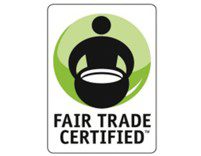
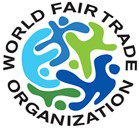

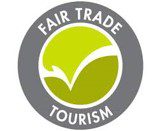
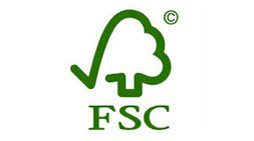
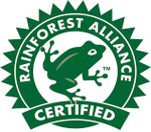
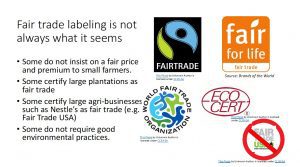
Proudly Serving
Fair Trade Coffee & Sugar
The coffee you are enjoying is ethically sourced, promoting fair wages, safe working conditions, and helping to combat the global problem of human trafficking and forced labor.
Ethical or fair trade represents an employment or trade relationship based on the treatment of workers, artisans and farmers, providing fair wages, safer working conditions and consideration to the community and environment. Fair Trade certification secures the rights of workers, reduces poverty and promotes sustainable practices.
When consumers choose fair trade or ethically-sourced products, they create demand for products that do not involve child labor and instead support the workers.

“Purchasing is always a moral
and not simply economic act.”
– Pope Benedict XVI






